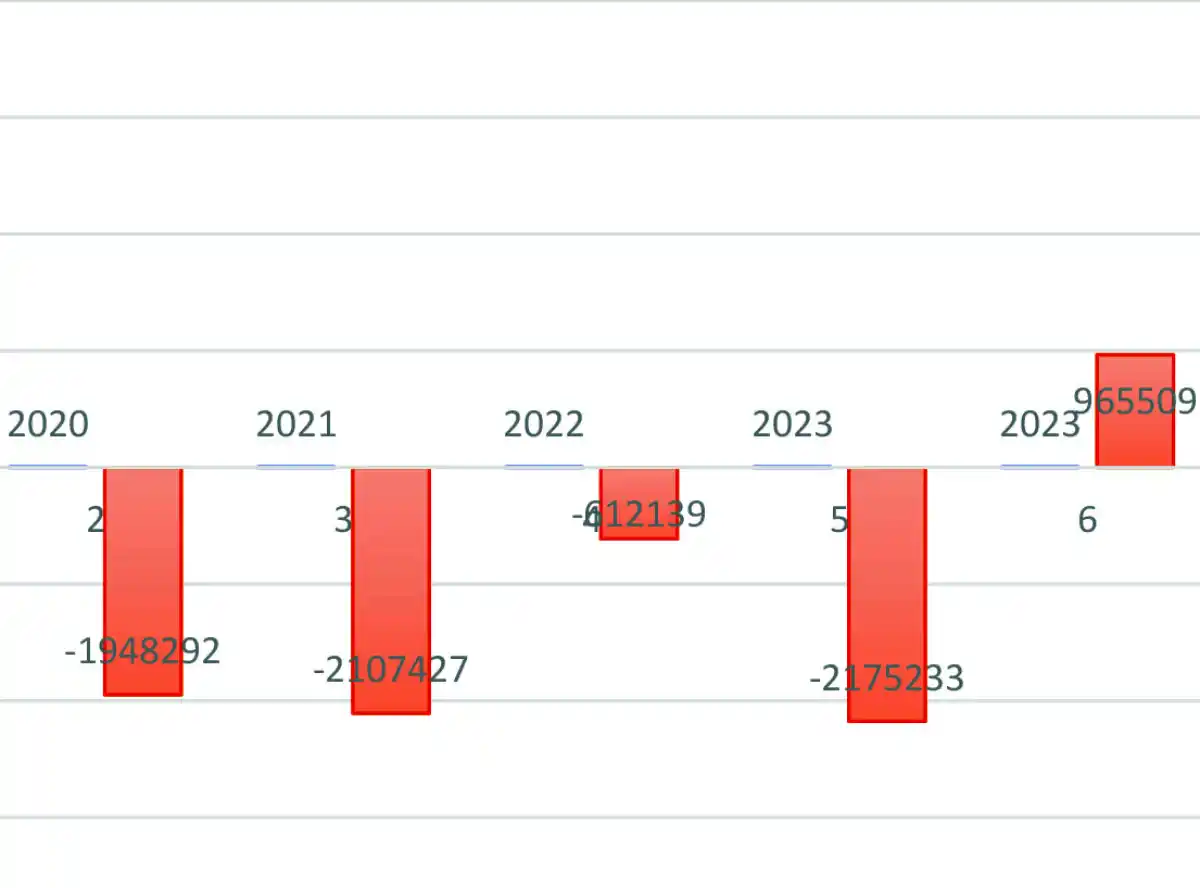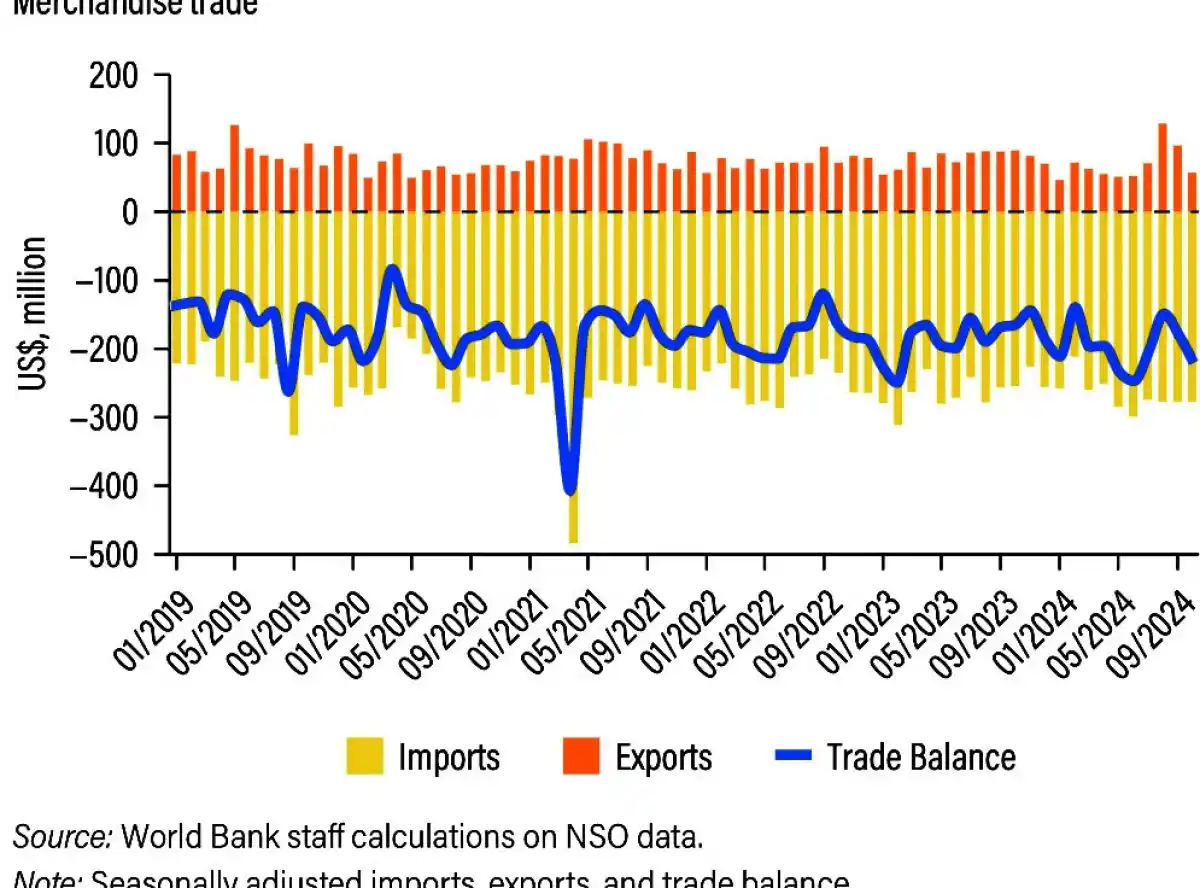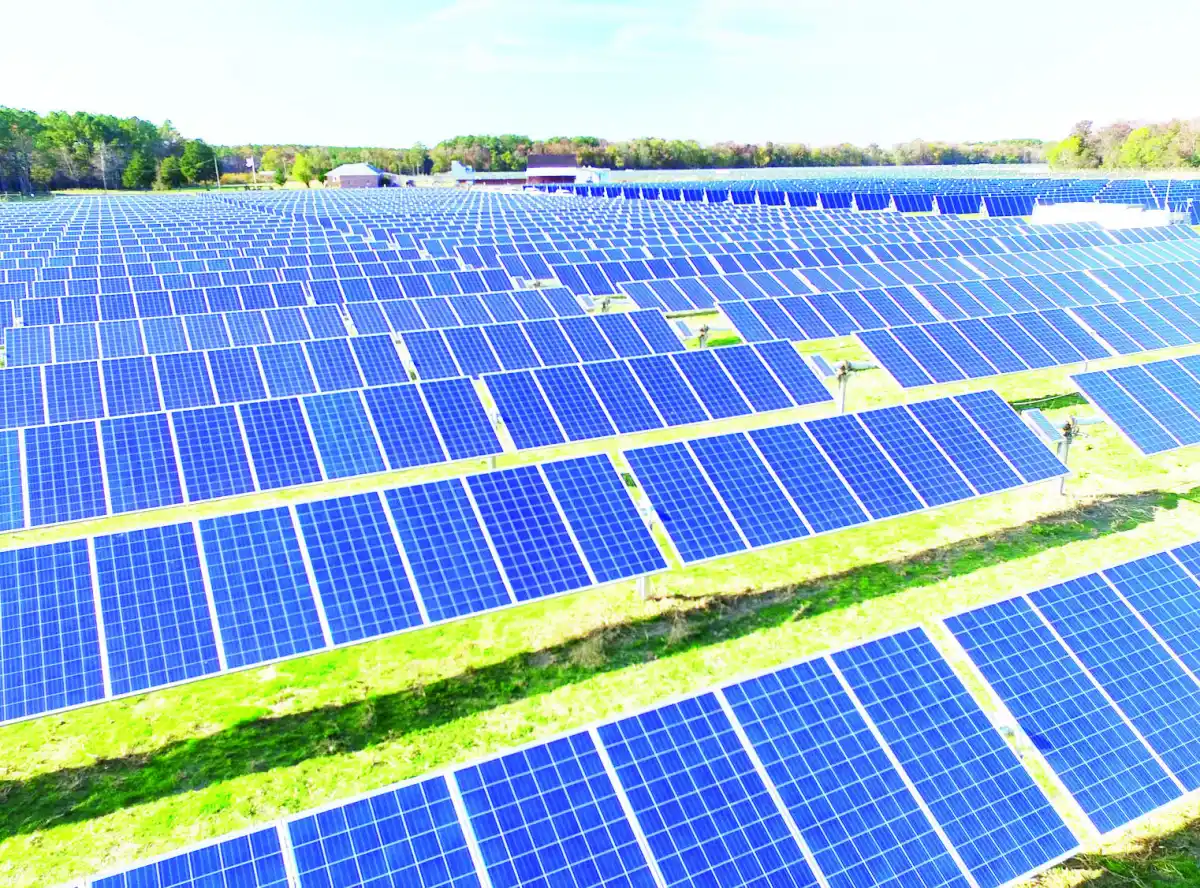
Malawi’s trade balance – the difference between a country’s exports and imports of goods – skyrocketed to –$2.17 billion in 2023, latest figures from the International Trade Center (ITC) Trade Map show.
The data indicates that Malawi exported goods valued at $965 million against importation of goods worth $3.14 billion in 2023.
This represents a 99 percent widening of the trade deficit when compared to a trade balance of -$612 million recorded in 2022.
In the past five years, the country’s trade balance has been hovering around -$2 billion.
Previously, experts described the narrowing of the trade balance in 2022 as stemming from reduced imports owing to a drastic shortage of foreign exchange experienced in the country.
In an interview, economist Marvin Banda said with an exponentially growing population and very narrow production and manufacturing base, it naturally translates to a heavy reliance on imported goods and services at the continued peril of growth of domestic production.
He further said the unsustainable demand for imports is undermining the supply of means of production especially in the foreign currency market which continues to experience shocks to both elements leading to inflation pressures that have laid manifest thus far in the economy.
“The bulk of imports have been for transitory stages of consumer goods and services that have a high replacement ratio meaning that there is added pressure which further disturbs the equilibrium that determine the trade balance.
“Traditionally, Malawi has learned to operate on meager margins by calling upon the aid of development partners. The hope is that strict adherence to the International Monetary Fund remedies prescribed in the Extended Credit Facility package will continue to streamline the bloated government fiscal structure and will continue being a signal toward benevolent development partners,” Banda said.
He added that Malawi’s export base consists primarily of raw materials which lack value addition which singly adds 23 percent to the GDP translating to foreign currency generation falling at the whims of seasonal agricultural practices.

Another economist Velli Nyirongo said the significant widening of Malawi’s trade deficit indicates a challenging economic situation for the country.
He said a wider trade deficit implies that more foreign exchange is leaving the country to pay for imports than is being earned from exports which further depletes Malawi’s foreign exchange reserves, exacerbating the currency shortage.
“With a significant portion of consumer goods being imported, a weaker trade balance could lead to higher import costs, especially if the local currency depreciates. This is resulting in higher inflation, affecting the cost of living for Malawians.
“To finance the trade deficit, Malawi has increased its borrowing, leading to higher national debt. This has the potential to burden future budgets with debt service obligations, potentially crowding out other essential public expenditures,” Nyirongo said.
Malawi has been heavily dependent on imports for essential goods and services, including fuel, machinery and consumer goods, which it cannot produce domestically in sufficient quantities or quality.
The country’s export base has been narrow and vulnerable to external shocks. For instance, reliance on a few agricultural products such as tobacco tea and sugar has made exports volatile and less reliable as a source of foreign exchange.








0 Comments